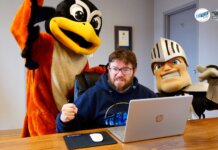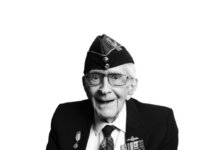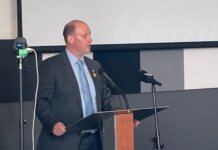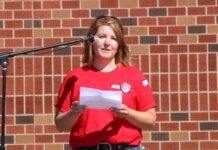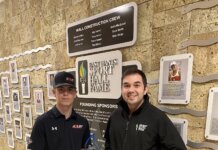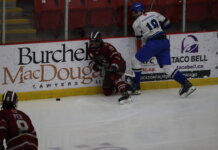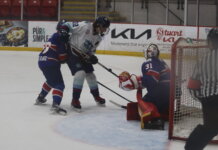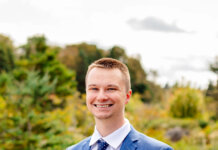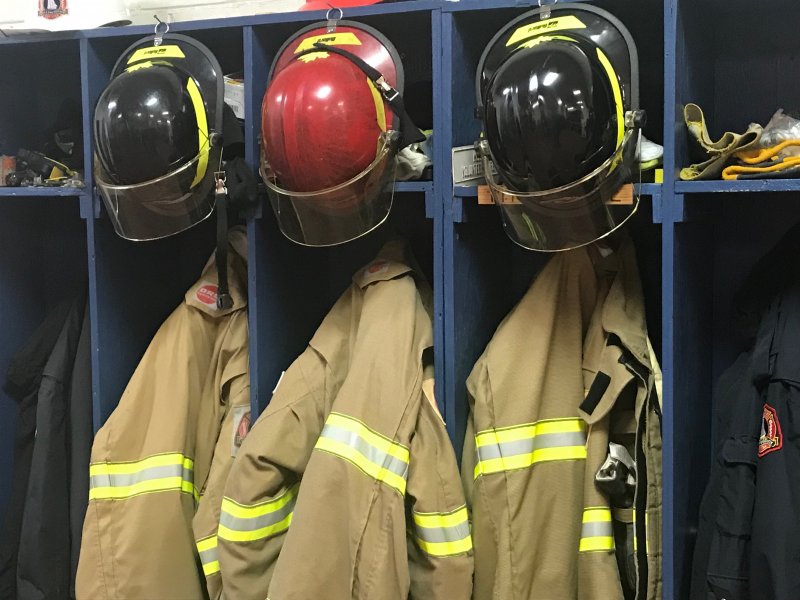WELLINGTON: Recently, The Laker sat down with the local Station Chiefs of volunteer fire departments in Waverley; Fall River; Wellington/Grand Lake; and Goffs.
The sitdown chat inside the Fall River Tim Hortons was done to help bring awareness of the need for more volunteer firefighters at area stations.
Here it is:
The Laker: Why do you need more Volunteer firefighters?
Station Chiefs: “When it comes to an emergency call, the most basic medical call that we respond to is sufficient with four members attending. Once you expand on the size or type of call (car accidents, fires), then more hands are needed. A small structure fire, depending on location of water supply would require at least 20 members and nine fire trucks to respond.
“Our communities are fortunate enough to have Career coverage at Station 45(Fall River) right now during the weekdays and starting in Jan. 2020, there will be 24-hour coverage with a crew of four career members.
“With everyone’s everyday busy lifestyles, careers and families, it makes it harder to recruit new volunteers. Besides the initial training which can seem like a lot, you would be looking at approximately five hours per week between training and calls.”
The Laker: What are some benefits of being a Volunteer Firefighter?
Station Chiefs: “Where do we start! The two main benefits is the experience and giving back to your community. There are many more like free training, free use of gym, free license plates, great camaraderie between yourself and your soon to be fire department family. There is also an honorarium points system which you accumulate over the year for calls and training attended. This then get calculated at the end of the year and you receive some money for the time you put in.”
The Laker: What could happen to responses if not enough members show up?
Station Chiefs: “Depending on the type of call and without adequate resources responding within the initial 5-10 minute time frame, fires especially could great aggressively worse.
“When not enough resources respond initially, then more units from further away will get added to the call which will take even more time to get to the scene. This gets worse the more rural you get as you have smaller population’s therefore smaller amounts of community members stepping up to become volunteers.”
The Laker: How much training is involved?
Station Chiefs: “We train every Tuesday night either in station or in the communities that we serve. When first joining, there are 7 weekends for the physical hands on training that is spaced out to every second weekend during the Spring or Fall VRT (volunteer recruit training).
“Along with that is some theory training online. Once accepted into the VRT either in the fall or spring, you also can attend regular scheduled training at your station which gives you an arm up when starting VRT.”
The Laker: What do you get out of giving back to your community?
Station Chiefs: “Sense of pride and fulfillment are two big ones. You also gain new friendships, skills and an experience like no other. Showing up to try and help someone when they are possibly having the worst day of their lives and being able to help make it better whether it’s only a little bit is what its truly about.
“You can stop by any of the Stations on a Tuesday evening at 7pm to get an application or reach out to one of the Station Chiefs to have any questions answered at the numbers below:
Station 41 (Waverley) – Bryan Lynch – 902-488-9969
Station 42/43 (Wellington/Grand Lake) – Ryan Crain – 902-499-5005
Station 45 (Fall River) – Nick Yeomans – 902-818-0060
Station 47 (Goffs) – Donny Thompson – 902-499-6791.”

